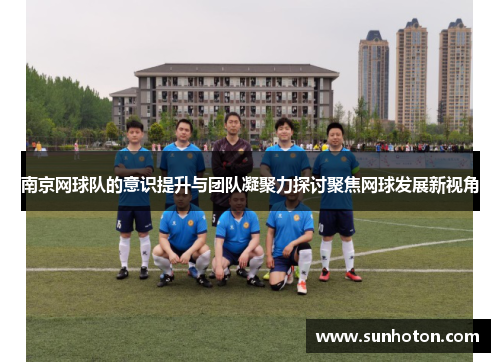本文旨在探讨南京网球队在意识提升与团队凝聚力方面的现状与发展,提出新的视角来促进网球运动的发展。首先,通过分析网球队成员对个人与团队目标的认知,强调意识提升的重要性;其次,论述良好的沟通机制如何增强团队凝聚力;接着,探讨心理素质训练对运动员在比赛中表现的影响;最后,结合实际案例分享成功的团队文化建设经验,以期为南京网球队的发展提供借鉴和启示。在总结部分,将综合上述观点,强调意识提升和团队凝聚力是推动网球发展的关键所在。

1、意识提升的重要性
在现代体育竞技中,运动员的自我意识和团队意识愈发受到重视。南京网球队作为一支有潜力的队伍,其成员在比赛中的表现很大程度上依赖于他们对自身角色以及整体团队目标的认知。通过定期举办队内讨论会,可以有效提升队员们对自身技术水平、战术安排及其在比赛中所承担角色的理解。
HB火博·体育此外,教练可以通过设置具体而明确的目标,引导队员们朝着共同方向努力。当每位队员都能清晰地认识到自己的任务时,这不仅能提高他们的积极性,还能增强彼此之间的信任感,从而形成更强大的集体意识。
最终,在这样的环境下,运动员能够更加专注于个人技能的提升,同时也能够更好地融入整个团队,为实现更高水平的成绩奠定基础。
2、良好沟通机制构建
沟通是任何团队合作成功的重要因素,对于南京网球队而言尤为重要。建立良好的沟通机制,不仅可以帮助教练及时传达战术意图,还可以让队员们互相交流心得与体会。在日常训练中,可以通过组织小组讨论或一对一交流等形式,加强队员之间的信息共享。
此外,利用现代科技手段,如社交媒体或专属APP,可以使得信息传递更加迅速高效。这种方式不仅可以打破时间和空间上的限制,还能够鼓励更多的人参与到讨论中,提高大家对于战术执行及其效果反馈的关注。
通过不断优化沟通机制,使得每位成员都能参与到决策过程中,从而增强了归属感和责任感,这对于整个球队气氛以及取得佳绩都有极大的促进作用。
3、心理素质训练的重要性
心理素质是决定运动员在比赛中表现的重要因素之一。特别是在高压环境下,保持良好的心理状态往往能够成为胜负关键。因此,在南京网球队中引入专业心理素质培训显得尤为重要。这种培训不仅包括基本心理技巧,更涉及如何应对压力和挫折的方法。
通过开展相关课程,让队员们学习如何进行自我调节,以及如何在面对强敌时保持冷静。此外,也可以邀请专业心理顾问进行现场指导,以模拟真实比赛情境,让队员提前适应压力环境,从而提高他们应变能力。
随着心理素质逐渐得到重视,相信南京网球队将在未来赛事中展现出更为出色的一面,不仅能够提高个体表现,也会进一步增强整个团队协作能力。
4、成功案例分享
Nanjing tennis team has made significant progress in recent years, thanks to its focus on team culture and shared values. Through分析successful teams from other sports, we can identify common elements that contribute to their success. For instance, fostering a strong sense of belonging among members is crucial for building a cohesive unit.
The implementation of team-building activities, such as retreats or collaborative training sessions, can create bonds between players that transcend the court. By sharing personal stories and experiences, team members can develop empathy and understanding for one another, leading to enhanced collaboration during competitions.
This approach not only boosts morale but also encourages accountability among teammates. When individuals feel invested in each other's success, they are more likely to put forth their best effort in both practice and competition settings.
总结:
Nanjing tennis team's insights into enhancing awareness and team cohesion present valuable lessons for the broader context of sports development. The integration of self-awareness with effective communication mechanisms creates an environment where athletes thrive individually while supporting collective goals.
The ongoing commitment to psychological training further complements these efforts, ensuring that players are not just physically prepared but mentally resilient as well. As Nanjing tennis team continues to evolve, it stands poised to make significant contributions to the growth of the sport at all levels.


